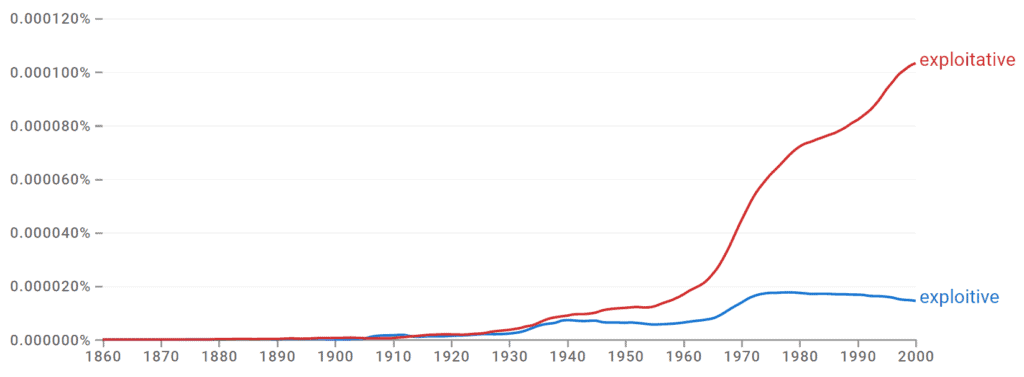Do you ever worry you are misspelling (or mispronouncing) a word despite its obvious acceptance by your audience?
The English language is full of these types of words, many of which are generally accepted as correct despite their limited or localized use. Exploitive and exploitative are perfect examples of this. Exploitive is a localized, or native, use of combining the word exploit with the suffix -ive. However, the correct and more widely accepted spelling is exploitative.
Is It Exploitive or Exploitative?

The definition of exploitative is to make use of a situation in a selfish or unethical manner to gain a benefit or advantage. It is an adjective used to describe a person’s actions to take advantage of something for personal gain.
For example:
- Social media has become incredibly exploitative of our youth’s innocence and pushes a materialistic lifestyle over health and happiness.
- The car dealership was exploitative of the new buyer’s ignorance and talked him into extra coverage that wasn’t needed.
Exploitive may seem breezier and more efficient, but English often flouts economy when it comes to the -tative and -ive suffixes. A few dictionaries accept exploitive as an alternative spelling of exploitative, but most correctly acknowledge that the latter is the far more common and correct form.
Even grammar and spell check programs will grammatically check exploitive as incorrect and offer exploitative as the better option.
Origins of Exploitative

The nGram, which graphs the use of exploitive and exploitative (as a percentage of all words used) across English-language works, shows that exploitative has long been accepted as the correct form of the word in written text.
Exploitative’s root is exploit, meaning an achievement, advantage, or result. It comes from the Old French esploit, meaning “outcome of an action,” and was first used in the 1880s.
Exploitive is a localized formation of exploit plus the addition of -ive, a word-forming element that turns adjectives into verbs to mean “doing or pertaining to.” It first appeared in 1859 and is considered incorrect despite its general acceptance of use as a modern slang version of exploitative.
Let’s Review
Exploitative and exploitive are adjectives that mean to use a situation to take advantage or benefit from something in an unethical manner. Exploitive was created through the addition of the suffix -ive to exploit but was considered a native or local use until the proper spelling, exploitative, became more commonplace.
Today exploitive is considered a slang version of exploitative and, although accepted, is not grammatically correct in spelling or use.

Comments are closed.